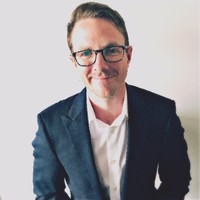A cancer survivor gives back
Illustration: Mary Delaney
Two years ago, Vicki Schmanske left work late on a Friday evening.
Schmanske, a Leidos executive, was sitting in her car outside the company’s headquarters in Reston, Va. when she saw a message on her phone.
Days earlier, she was examined for symptoms of what she believed was “something very minor,” but test results showed an aggressive form of cancer.
“I was in shock,” she said. “Our family had no real history of cancer, so it wasn’t a diagnosis I expected. I’d seen it happen to others around me, but I never thought it would happen to me.”
Schmanske said she was scared when she arrived home to her family.
“It was easy to assume the worst,” she said. “Will this be my last Christmas? Will I live to see my daughters graduate? Will I be there when they walk down the aisle? Will I live to meet my grandchildren?”
That evening, she received a call from Roger Krone, Leidos Chairman and CEO.
“He asked me if everything was okay,” she said. “I shared my diagnosis and he assured me we’d figure it out together. And there started my journey.”
Schmanske said she felt an overwhelming sense of vulnerability.
“Cancer is something we all fear,” she said, “but above and beyond fear I felt vulnerable. I wasn’t in control, and that was uncomfortable. I needed help. I needed good doctors. I needed to lean on people at work. And of course, I needed my family, friends and that hug from my daughter who said, ‘You’ve got this, Mom.’”
Schmanske said she was amazed by the support that poured in.
“From the moment I received my cancer diagnosis, Leidos supported me,” she said, “all the way up to the board of directors. They told me they had my back, and that more than anything, they expected me to take care of me.”
“Friends showed up. Flowers poured in. People really cared, and they did whatever they could. The generosity was overwhelming, and my fear and vulnerability quickly turned into hope and strength.”
Over the next several months, with the support of Leidos' flexible work structure, Schmanske worked full-time while undergoing treatment.
She was in the middle of her treatment plan when the pandemic hit.
“Thankfully my hospital stayed open,” she said, “but with everyone in quarantine, my support structure on treatment days was limited to my husband and a purple prayer shawl knitted by my sister.”
Throughout treatment, Schmanske consulted with cancer experts at Leidos, including Dr. Ethan Dmitrovsky, President of Leidos Biomedical Research, and Dr. Donald Kosiak, Leidos Chief Medical Officer.
“My mother, who’s a nurse, told me what I needed most was to stay positive,” she said, “so I leveraged all my resources. I learned from everyone I could to help me stay strong, positive and informed to make the right decisions. I wasn’t going to let cancer take me down.”
Weeks later, doctors declared her cancer-free.
“That’s my story,” she said. “Here I am. I’m a survivor.”
Two years later, Schmanske said she wants to help others who may be navigating a recent cancer diagnosis.
“I want people to realize there are so many others who have walked this journey,” she said, “and I hope my story will resonate with someone who might feel scared or vulnerable right now.”
“And more importantly, if you’ve been putting off that physical or routine examination, don’t wait any longer,” she said. “Let my experience be a reminder of the importance of screening and early detection.”
Cancer remains the second-leading cause of death in the U.S. behind heart disease, but cancer deaths have been declining for years.
“Science will win this fight,” she said. “The medical community is making unbelievable progress in cancer care and treatment. Forms of cancer that used to be death sentences are now treatable. I want everyone to know you don’t have to give up the fight.”
Last month, Schmanske presented a $40,000 donation on behalf of Leidos to benefit Make-A-Wish, Flashes of Hope, Pancreatic Cancer Action Network and Leukemia & Lymphoma Society.
“These groups we’re supporting are important parts of the ecosystem that help people navigate their journey, even if the outcome isn’t positive. Not everyone is as fortunate as I’ve been, and I recognize how much it means to have access to quality care. Together we’re all fighting to enable better care to more people, and I couldn’t be prouder of this company for playing an important part in this fight.”

